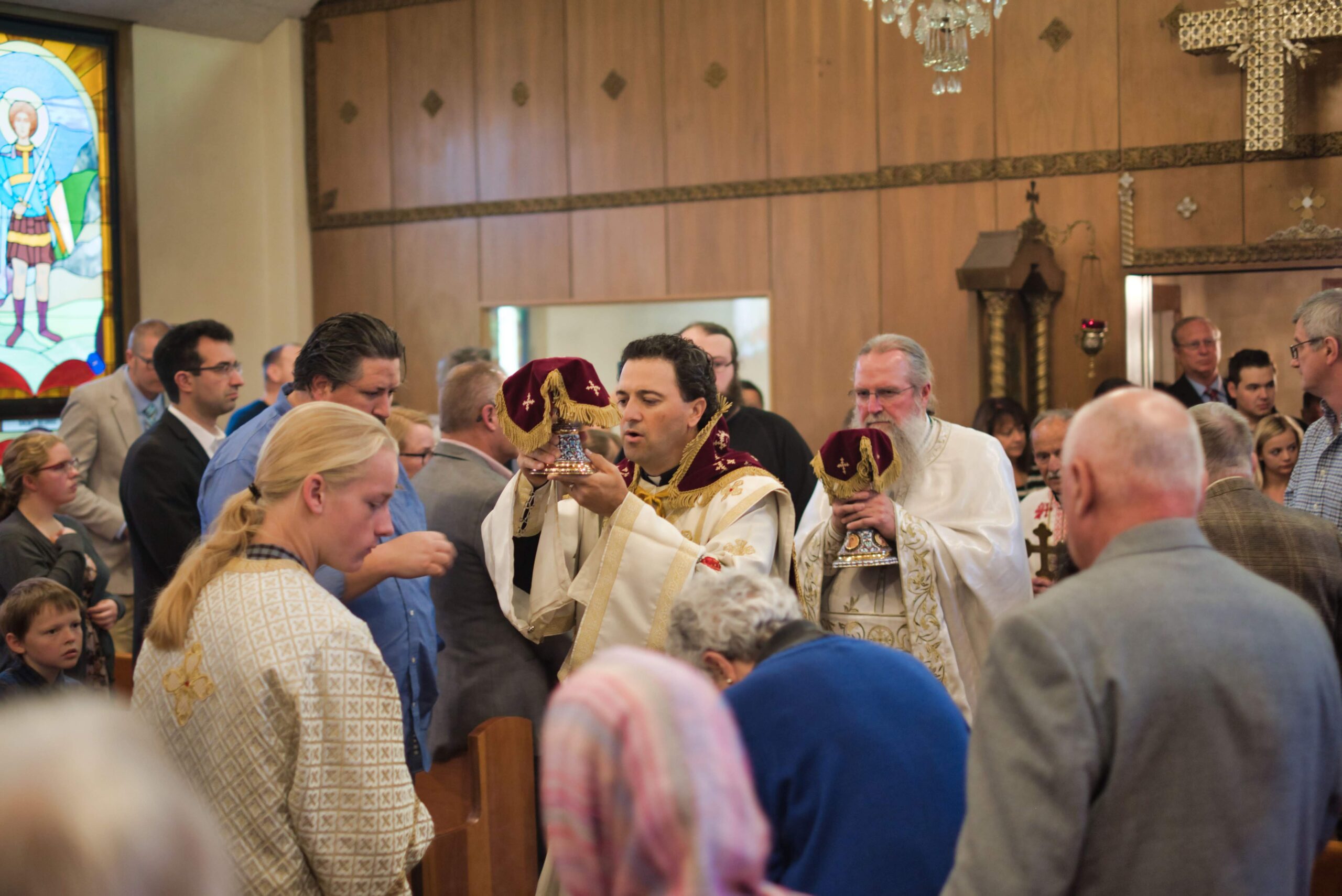
Attire
In all the areas of our lives, we should offer Christ our best. The same is true of our dress. We should offer Christ our “Sunday best,” not our everyday street clothing. We should dress neatly and modestly, not in a flashy way that would bring attention to ourselves, and not in a provocative way that might arouse temptation. Our dress in the church should always be that which is becoming to a pious Christian.
Children
We welcome children into our church with open arms. We encourage families to bring their children so that they will be exposed to Orthodox Christianity from a young age and become part of our church family. Our little ones may not be able to sit for the entirety of services, or may need to be fed or changed, or may become fussy or cry. Parents are advised to use their judgment during such moments and remove the child from the church until his behavior will no longer be disruptive.
Punctuality
The time to arrive at church is before the Divine Liturgy starts. If you arrive after the service begins, please follow the guidelines below so that your entrance does not interrupt the service. The best way to avoid entering the church at an inappropriate time is to arrive early.
Lighting Candles
Lighting candles is an important part of Orthodox worship. Each act of lighting is a form of prayer. It is customary to light a candle when one arrives at the church. There are times during the Divine Liturgy, though, when candles should not be lighted: during the epistle and gospel readings, the small and great entrances, the sermon, and the anaphora (prayer of consecration).
Venerating Icons
It is customary to venerate (kiss) the holy icons upon entering the church. This is one way that we worship our Lord and greet the saints of ages past. There are icons in the narthex and in the nave (main part). It is not proper to kiss an icon on the face, but rather the hand is kissed. If you are wearing anything on your lips, be careful not to get it on the icon.
Cell Phones
Cellular telephones must be silenced before entering the Church so as not to disturb other worshipers.
When not to Enter the Church
After the Divine Liturgy has begun, you should not enter the nave of the church at these points in the service:
- Epistle or Gospel (Bible readings)
- Great Entrance (offertory procession)
- Creed (affirmation of Faith)
- Anaphora (consecration prayers)
If you arrive after the service begins, enter the church quietly and observe what is happening. If any of these actions are taking place, wait until it is finished and then quickly find a seat.
Making the Sign of the Cross
Anyone who has looked around during the services will notice that people cross themselves at different times (and sometimes in different ways). To a certain extent, the timing for crossing oneself is a matter of personal piety and is not an issue of dogma. But, there are times when it is proper to cross oneself and times when one should not.
When to cross oneself:
- Upon entering or exiting the Church
- Before venerating an icon, the cross, or the Gospel Book
- At the beginning and end of the services, and of your private prayers
- When passing in front of the Holy Altar Table
- When you hear one of the variations of the phrase “Father, Son, and Holy Spirit”
When not to cross oneself:
- At the chalice before or after taking Communion in order to avoid hitting the chalice with your hand.
- When the bishop or priest blesses saying, “Peace be with all”. Just bow slightly and receive the blessing.
Crossing Legs
The crossing of legs suggests a kind of self-confidence or a lack of proper mindfulness not appropriate to prayer and worship. It is proper to sit straight when in the pews.
Leaving the Church
Leaving the church before dismissal deprives one of a blessing. Worship has a beginning, “Blessed is the Kingdom…”, and an end, “Let us depart in peace…” The best time to leave is when the congregation goes forward to receive the antidoron (blessed bread).


